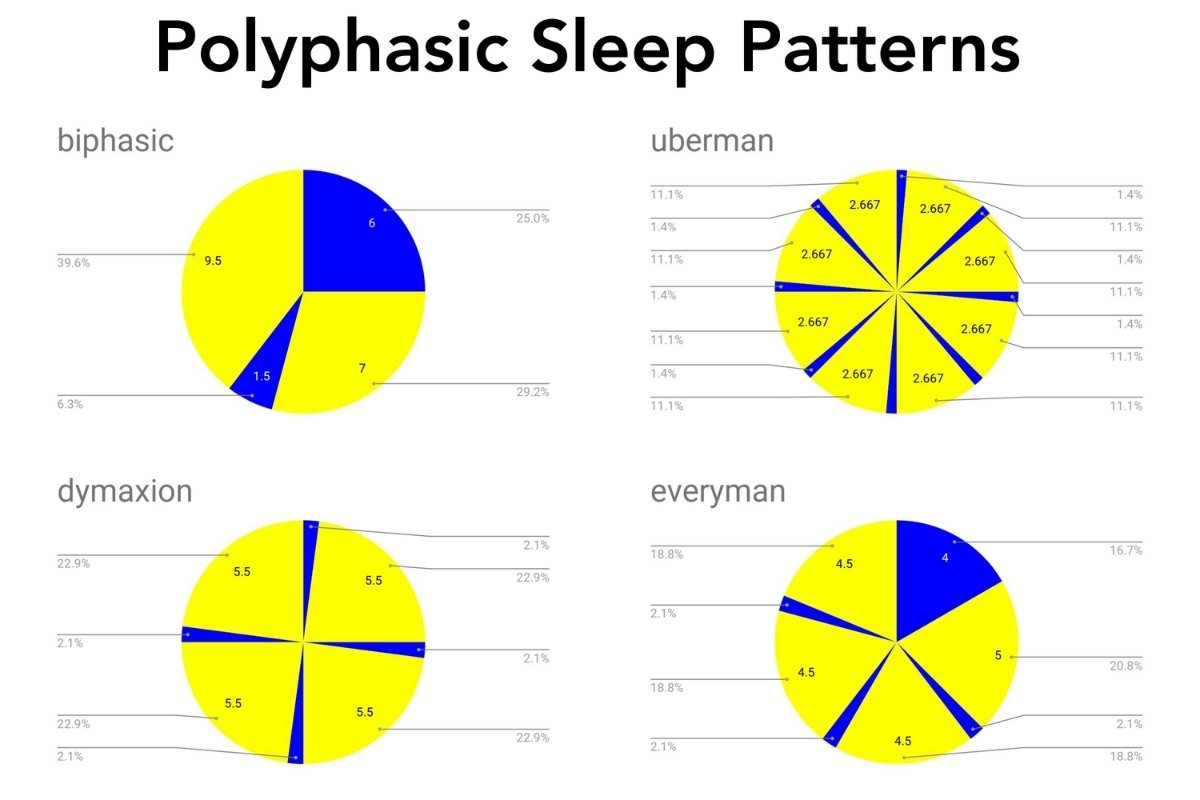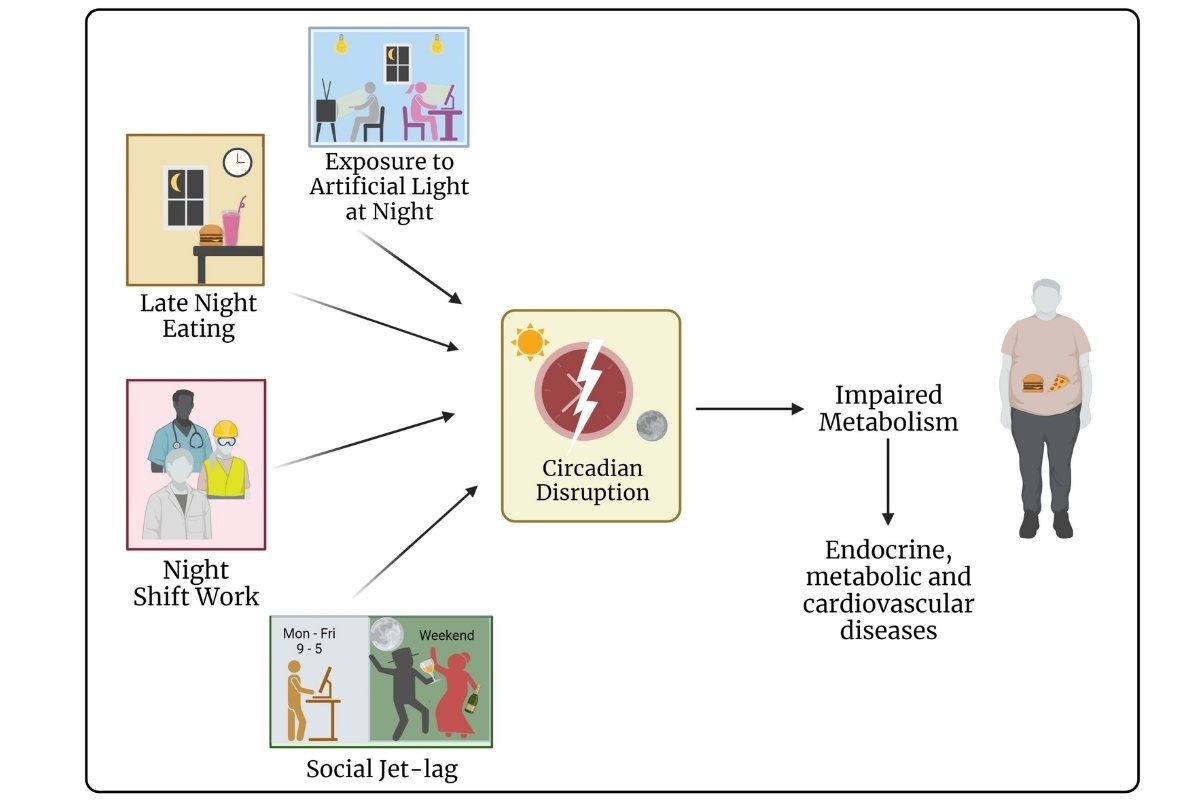Sleep is essential for overall health, yet many struggle to get quality rest. Traditional sleep advice like maintaining a consistent bedtime or avoiding screens before bed can be effective, but some unconventional sleep hacking techniques go beyond the basics, helping you maximize your rest and recharge like a pro. By incorporating these advanced methods, you can improve sleep efficiency, boost energy levels, and enhance mental clarity.
1. Polyphasic Sleep: Rewiring Your Sleep Cycles
Most people follow a monophasic sleep pattern, meaning they sleep in one continuous block. However, polyphasic sleep schedules, such as the Uberman or Everyman method, involve multiple shorter sleep periods throughout the day. These approaches can help individuals get by on less sleep while maintaining high cognitive function.
- Uberman Sleep Schedule: Consists of six 20-minute naps spaced evenly throughout the day, totaling only two hours of sleep.
- Everyman Sleep Schedule: Involves a longer core sleep period (3-4 hours) followed by several short naps.
- Biphasic Sleep: A simpler version where individuals split their sleep into two chunks, such as a nighttime sleep and a mid-day nap.

2. Temperature Manipulation: Cooling Down for Better Rest
Studies show that body temperature plays a crucial role in sleep quality. Cooling your bedroom to around 60-67°F (15-19°C) or taking a warm bath before bed can trigger your body’s natural sleep response. Advanced sleep hackers even use cooling mattress pads, temperature-controlled bedding, or even cold showers before bed to enhance deep sleep phases.
- Thermal Regulation Hacks:
- Using breathable bedding made from natural fibers
- Setting a smart thermostat to lower room temperature automatically at night
- Drinking a warm cup of herbal tea to promote vasodilation and relaxation
3. Light Exposure and Circadian Rhythm Control
Our circadian rhythms are influenced by light exposure. Blue light from screens can disrupt melatonin production, making it harder to sleep. Conversely, exposing yourself to bright natural light in the morning and wearing blue-light-blocking glasses in the evening can help regulate your body’s internal clock.
- Morning Light Exposure: Try getting at least 30 minutes of natural sunlight within an hour of waking up to set your circadian rhythm.
- Nighttime Light Management:
- Avoid screens at least an hour before bed.
- Use warm-colored night lights or amber-tinted glasses.
- Invest in smart bulbs that adjust their warmth and brightness based on the time of day.

4. Soundscapes and Binaural Beats
White noise machines, nature sounds, and binaural beats are popular tools for enhancing sleep quality. Binaural beats in particular use different frequencies in each ear to induce a meditative state, promoting deeper and more restorative sleep.
- Types of Sleep Sounds:
- White noise: Helps mask background noises.
- Pink noise: More soothing than white noise and can improve deep sleep stages.
- Delta wave binaural beats: Enhances deep sleep by promoting slow brainwave activity.
5. Strategic Napping for Performance Optimization
Short naps of 10-20 minutes can boost alertness without causing sleep inertia, while 90-minute naps can allow a full sleep cycle to complete, enhancing creativity and memory. Experimenting with different nap durations can help you find the perfect balance for your lifestyle.
- Power Nap (10-20 min): Boosts alertness and energy without grogginess.
- REM Nap (60 min): Improves creativity and problem-solving abilities.
- Full Cycle Nap (90 min): Allows full sleep cycle completion, benefiting memory consolidation.
6. Supplements and Biohacking Tools
Supplements such as magnesium, glycine, L-theanine, and melatonin can enhance sleep quality. Some biohackers also experiment with wearable sleep trackers to analyze sleep cycles and optimize their rest routines.
- Top Sleep-Enhancing Supplements:
- Magnesium: Helps relax muscles and calm the nervous system.
- L-Theanine: An amino acid that promotes relaxation without drowsiness.
- Melatonin: Regulates sleep-wake cycles but should be used in moderation.
- GABA: A neurotransmitter that helps reduce anxiety and promote restful sleep.
7. Mindfulness, Meditation, and Breathwork
Relaxation techniques like progressive muscle relaxation, deep breathing exercises, and meditation can significantly improve sleep quality by reducing stress and promoting a sense of calm before bedtime.
- Mindfulness Techniques for Better Sleep:
- Progressive Muscle Relaxation: Tensing and relaxing muscle groups to ease tension.
- 4-7-8 Breathing Technique: Inhaling for 4 seconds, holding for 7, exhaling for 8 to slow heart rate and relax the body.
- Guided Meditation: Using sleep-focused meditation apps to guide relaxation.
Sleep hacking is about finding what works best for your body and lifestyle. By incorporating these unconventional methods, you can improve sleep quality, enhance cognitive function, and wake up feeling fully recharged every day. Experiment with these strategies to develop a sleep routine tailored to your personal needs and start waking up more refreshed than ever before.


